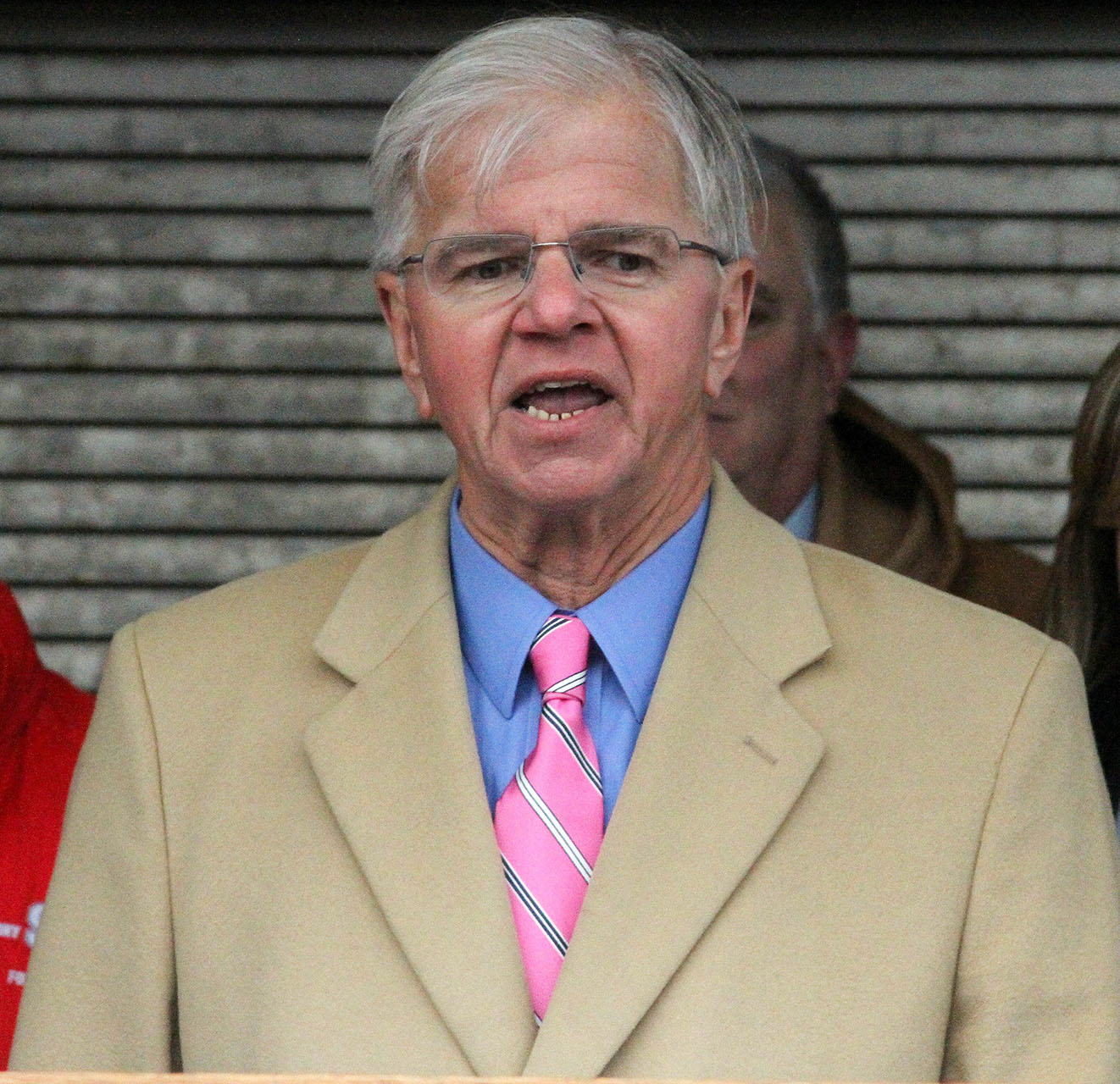Thiele Withdraws Support For South Fork Wind Farm

Deepwater Wind’s proposed South Fork Wind Farm, which has faced growing criticism over the months, was dealt a public relations, if not a political, blow last week when New York State Assemblyman Fred Thiele withdrew his support for the project.
In a press release issued on January 24, Thiele said two events led to his about-face. The first was the announcement in October that Deepwater had been sold to Ørsted, a Danish energy company and a major player in offshore wind. A second factor, Thiele said, was Ørsted’s decision to expand the capacity of the wind farm from 90 megawatts to 130 megawatts by building larger turbines.
The assemblyman described the changes as a bait and switch. “What we were originally told about the project and its goals are no longer true,” he said. “A project originally proposed by an American company to address the growing needs of eastern Long Island, now is to be part of the portfolio of an international energy giant, whose first decision was a 44-percent increase in the size of the project. We are left to imagine what other changes might be made or what other projects might show up on our doorstep.”
In the past, Thiele, who is generally a strong proponent of green energy, had expressed his measured support for the wind farm, provided the concerns of East Hampton residents, including commercial fishermen, were answered, but he stressed that his general support “should not be construed as a rubber stamp for every off-shore wind project that is proposed.”
Thiele said he grown increasingly frustrated with Deepwater’s failure to keep him — as an elected state official — in the loop. “After being frequently lobbied and contacted by them when things were pending before the Town of East Hampton, I was surprised that when a change as important as them selling the company was announced, I had to read it in the paper,” he said.
Meaghan Wims, a Deepwater spokesperson, said the company was surprised by Thiele’s announcement.
“We’ve requested multiple times over the course of the last four months to meet with Assemblyman Thiele to brief him on the facts,” she said in an emailed statement. “Frankly, we’re confused why Assemblyman Thiele was such a strong and vocal supporter of the 90-megawatt project, but now opposes the project when it’s capable of producing even more clean energy for his constituents at a lower price.”
Thiele said he, in fact, planned to meet with Deepwater officials later this week, but added that he did not expect his opinion to change.
Clint Plummer, Deepwater’s vice president of development, added on Monday that the company remained committed to its project. “We have been working on developing this for a very long time,” he said, “and we believe the changes that have happened are very positive for the community.” He said “improvements in technology” made it possible for the wind farm to produce more power from the same number of turbines.
Thiele’s announcement was greeted with dismay by Gordian Raacke, an East Hampton resident and the executive director of Renewable Energy Long Island, a nonprofit that advocates for green energy.
“This statement really surprised me,” he said, “especially coming at this moment in time when the wind farm is undergoing a lengthy and thorough environmental review at both the state and federal level.”
The wind farm application is currently being reviewed by the state Public Service Commission and the federal Bureau of Ocean Energy Management.
“Before that is on the record, I don’t think it makes sense to jump to conclusions,” he said. “You should look at the entire record, not make a decision at the beginning of the process.”
But Bonnie Brady, the executive director of the Long Island Commercial Fishing Association, and a critic of Deepwater’s plans, said she was “shocked and thrilled” to learn of Thiele’s change of heart.
Brady, and other fishing advocates, have raised concerns about the impact pile-driving for the turbines can have on fish stocks as well as the possibility that the vibrations from their movement could scare fish away.
She and others have also said the wind farm’s power cable, which is supposed to be buried under concrete slabs in areas where it cannot be buried below the ocean bottom, could pose hazards by hooking dragger nets, destroying the gear of or even imperiling fishing boats.
Brady has also argued that the East End no longer needs the power expected to be generated from the wind farm because of strides made in energy efficiency that are reducing the need for power. She also opined the state and power providers have been too secretive about their plans.
“Once everyone starts peeling back the onion, you realize they basically want to industrialize the ocean,” she said.
Thiele said he also was concerned by the Long Island Power Authority’s refusal to release the terms of its contract with Deepwater. He vowed to introduce legislation this year that would compel LIPA to disclose how much it is paying for the energy the wind farm — and future projects like it — will produce.









